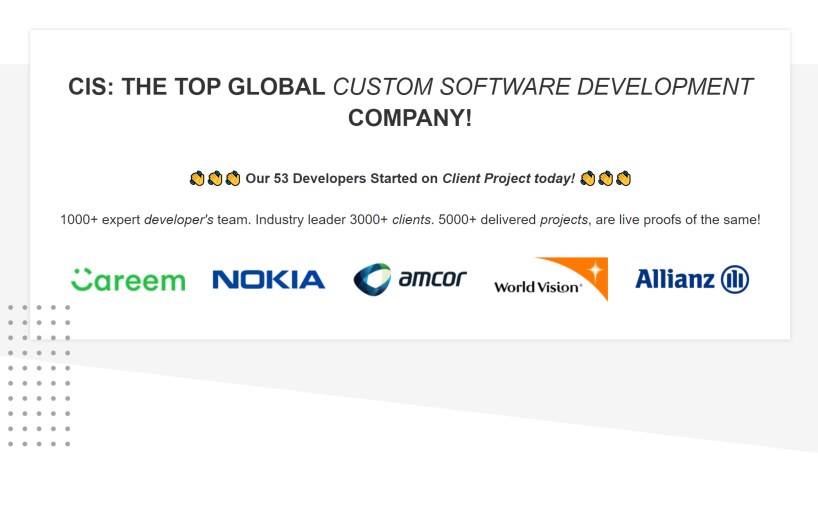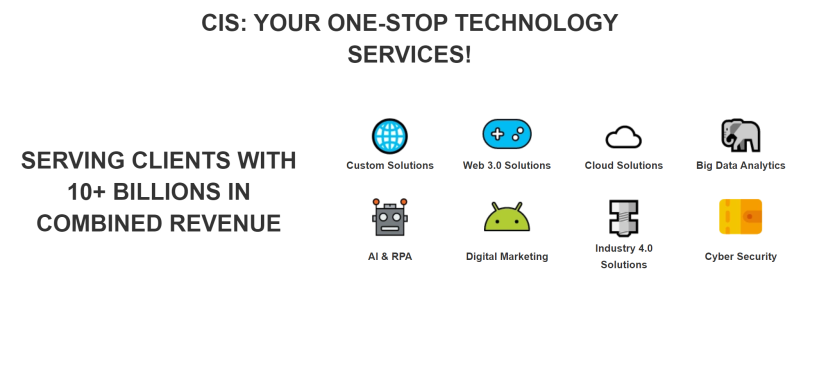Maximizing ROI: The Cost and Benefits of Adopting Sap Erp Integrations With Amazon Web Services for Your Business
- SAP ERP integrations with Amazon Web Services - Detailed Analysis by Enterprise Solutions Experts
Request A Free Consultation - Why Use SAP ERP Integrations With Amazon Web Services



Why Mid-size Companies and Enterprises needs SAP ERP Integrations With Amazon Web Services:
Mid-size companies and enterprises need SAP ERP integrations with Amazon Web Services (AWS) in order to leverage the cloud infrastructure of AWS for their business operations. By integrating SAP ERP with AWS, mid-sized companies can benefit from a range of services such as improved scalability, cost efficiency, storage capacity, security compliance, and data analytics capabilities. Additionally, it helps businesses manage large volumes of customer data more efficiently by providing enterprise-level solutions that are tailored to their needs. With an integrated system like this in place, mid-sized companies can also easily scale up or down depending on demand and reduce IT costs associated with running complex applications on premise.
Benefits of using SAP ERP Integrations With Amazon Web Services in Mid-size companies and Enterprises:
1. Increased Efficiency:
SAP ERP integrations with Amazon Web Services allow companies to automate processes, reducing the amount of manual labor and time needed to complete tasks. This can lead to improved efficiency, allowing for more productive use of resources.
2. Improved Data Security:
By leveraging AWS's secure cloud infrastructure, organizations can ensure that their data is kept safe from unauthorized access or malicious attacks. This helps protect sensitive customer information and other important business data from potential security threats.
3. Cost Savings:
Integrating SAP ERP with AWS reduces hardware costs associated with running an on-premise system since it eliminates the need for additional physical servers or IT personnel to maintain them. Additionally, businesses benefit from lower licensing fees due to reduced storage requirements when using a cloud-based solution like AWS instead of an on-premise one.
4. Scalability & Flexibility:
With SAP ERP integrations with Amazon Web Services, companies have the ability to scale up or down quickly in response to changing business needs without incurring significant capital expenses associated with purchasing additional hardware or software licenses upfront. This flexibility allows organizations to be agile and responsive in today's rapidly changing marketplace while still taking advantage of all the benefits offered by SAP ERP solutions such as increased productivity and cost savings over traditional systemsDetailed Features of SAP ERP Integrations With Amazon Web Services for Mid-size companies and Enterprises:
1. Automation of Business Processes:
SAP ERP integrations with Amazon Web Services (AWS) enable mid-size companies and enterprises to automate their business processes, such as order processing, inventory management, customer relationship management (CRM), financials, and more. This helps reduce manual effort and improve the accuracy of data entry.
2. Secure Data Storage:
AWS provides secure storage for SAP ERP data that is highly available and resilient to hardware failure or other disruptions in service availability. The system ensures that all data is stored securely on a private cloud environment with encryption protocols in place to protect confidential information from unauthorized access or malicious attacks.
3. Scalability & Performance:
With AWS's elastic compute resources like EC2 instances, businesses can easily scale up their computing power when needed without having to invest heavily in additional hardware infrastructure upfront. This allows them to quickly adapt to changing workloads while ensuring optimal performance of their applications at all times.
4. Cost Savings:
By leveraging the pay-as-you-go model offered by AWS for its services, mid-size companies and enterprises can save significantly on operational costs compared with traditional IT infrastructures hosted on premise or elsewhere.. Additionally, they benefit from reduced maintenance requirements due to the automated scaling capabilities provided by AWS which eliminates any need for manual intervention during peak hours or periods of high demandRequest A Quote - Why Use SAP ERP Integrations With Amazon Web Services
Who are the Users of SAP ERP Integrations With Amazon Web Services:
The customers using SAP ERP integrations with Amazon Web Services include large enterprises, mid-sized businesses, and small companies in a variety of industries such as retail, manufacturing, financial services, healthcare, and government.
How to ensure Data Security and Compliance with SAP ERP Integrations With Amazon Web Services:
1. Use secure authentication protocols:
When integrating SAP ERP with Amazon Web Services, use secure authentication protocols such as OAuth 2.0 or SAML (Security Assertion Markup Language) to ensure that only authorized users have access to the data and services being integrated.
2. Leverage encryption technologies:
Encrypt all data stored in AWS using strong encryption algorithms like AES-256 or RSA-2048 for maximum security of your sensitive information. Additionally, make sure that any communication between the two systems is encrypted using SSL/TLS protocols to protect against eavesdropping attacks.
3. Monitor user activity:
Monitor user activity on both platforms regularly and take appropriate action if any suspicious activities are detected, such as unauthorized access attempts or data manipulation attempts by malicious actors.
4. Follow regulatory requirements:
Make sure you comply with all applicable laws and regulations related to data privacy and security when integrating SAP ERP with Amazon Web Services, including GDPR (General Data Protection Regulation), HIPAA (Health Insurance Portability & Accountability Act), SOX (Sarbanes-Oxley Act), etc., depending on the type of data involved in the integration processHow SAP ERP Integrations With Amazon Web Services can increase organization Productivity, Agility, and Profitability:
SAP ERP integrations with Amazon Web Services (AWS) can help organizations increase their productivity, agility, and profitability by providing a secure platform for storing and managing data. By using AWS services such as Amazon Elastic Compute Cloud (EC2), Amazon Simple Storage Service (S3), and Amazon Relational Database Service (RDS), companies can access their SAP ERP applications from anywhere in the world without having to purchase or maintain physical hardware. This makes it easier for businesses to scale up quickly when needed without investing heavily in additional infrastructure. Additionally, AWS offers reliable uptime performance which ensures that businesses are always able to access their critical business systems when they need them most. Finally, by leveraging the cost-effective pricing model of AWS cloud services, companies can reduce operational costs while still enjoying high levels of security and reliability.
Request A Quote - Why Use SAP ERP Integrations With Amazon Web Services
How to Measure KPIs and increase Benefits of implementing SAP ERP Integrations With Amazon Web Services in Mid-size companies and Enterprises:
1. Track the number of successful integrations and compare against the total number attempted to determine success rate.
2. Monitor time-to-implementation for each integration and measure improvements in efficiency over time.
3. Measure cost savings achieved through reduced manual labor or improved automation capabilities due to AWS integrations with SAP ERP systems.
4. Assess customer satisfaction levels before and after integration, such as by surveying customers on their experiences using the integrated system compared to previous solutions used prior to implementation of Amazon Web Services (AWS).
5. Analyze data quality improvements that result from more accurate data entry into SAP ERP systems due to automated processes enabled by AWS integrations, such as fewer errors or faster completion times for transactions processed through the system versus manually entered data points in a non-integrated environment..
6. Evaluate operational performance metrics related to inventory management, supply chain optimization, financial reporting accuracy, etc., which can be positively impacted when integrating SAP ERP with an AWS solution stack
How SAP ERP Integrations With Amazon Web Services can increase Employee Morale in your organization:
SAP ERP integrations with Amazon Web Services can increase organization employee morale by streamlining existing processes, reducing costs, and providing greater access to data. This will enable employees to be more productive and efficient in their workflows, allowing them to focus on tasks that are more meaningful and rewarding. Additionally, the integration of SAP ERP with AWS can provide real-time insights into organizational performance metrics which can help identify areas where improvements need to be made. This increased visibility into how the organization is performing will likely lead to improved morale as employees feel empowered by being able to see the results of their efforts.
How SAP ERP Integrations With Amazon Web Services is Better than its Competitors:
SAP ERP integrations with Amazon Web Services (AWS) offer several advantages over its competitors. Firstly, AWS provides a secure and reliable cloud infrastructure that is designed to scale up or down as needed. This allows businesses to quickly deploy their applications without the need for additional hardware investments or maintenance costs associated with on-premise deployments. Furthermore, SAP ERP integrates seamlessly with other AWS services such as Amazon Elastic Compute Cloud (EC2), Amazon Relational Database Service (RDS), and more, allowing customers to leverage the full range of capabilities offered by AWS. Finally, SAP's integration with AWS ensures that data remains safe and secure while being accessible from anywhere in the world at any time.
Request A Quote - Why Use SAP ERP Integrations With Amazon Web Services
Cost to Develop & Implemention of SAP ERP Integrations With Amazon Web Services:
The cost of developing and deploying SAP ERP integrations with Amazon Web Services will depend on the complexity of the project, as well as the number of resources needed to complete it. Generally speaking, a typical integration project can range anywhere from $50K - $500K depending on scope and requirements.
Why outsourcing implementation services for SAP ERP Integrations With Amazon Web Services is better for Mid-size companies and Enterprises:
Outsourcing implementation services for SAP ERP integrations with Amazon Web Services can be beneficial to mid-size companies and enterprises because it allows them to access the expertise of experienced professionals without having to hire in-house staff. Furthermore, outsourcing these services can help reduce costs since they will not have to pay for expensive software licenses or training programs. Additionally, outsourcing gives businesses access to a wide range of tools and resources that would otherwise be unavailable. This includes specialized cloud solutions such as Amazon Web Services which provide secure infrastructure and scalability options that are essential for deploying large-scale applications. Finally, working with an experienced third party provider also helps ensure successful integration between the two systems which is critical for long term success.
Request A Quote - Why Use SAP ERP Integrations With Amazon Web Services


